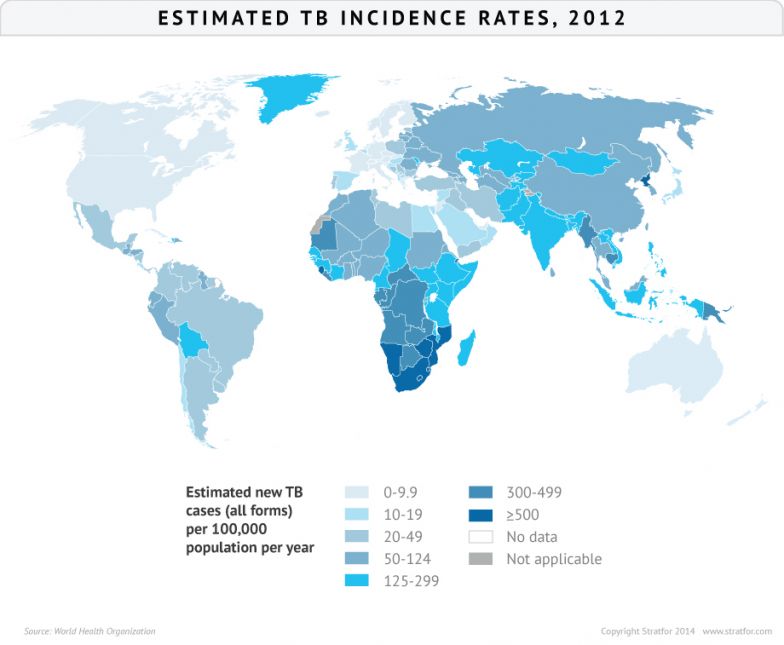
Many news agencies are focused on the Ebola virus outbreak and the corresponding humanitarian crisis in West Africa, but there are several other diseases endemic throughout the world that are likely to have long-term humanitarian and economic consequences. Tuberculosis is one such disease, and it is presenting a formidable problem as drug-resistant strains become more prevalent.
An airborne bacterium that usually targets the lungs, TB is a treatable and preventable illness, yet it is still ubiquitous in some parts of the world. The worldwide rate of infection has been falling slowly over the past decade, but TB remains a global health problem. In 2012, 8.6 million people were infected and 1.3 million died. On average, TB killed more than 3,500 people per day in 2012. To put that into perspective, fewer than 2,000 people have died since the start of the current Ebola epidemic in West Africa.
Most drug-resistant TB cases are found in China, India and Russia, and because the cost of treating drug-resistant strains is much higher than in regular cases, effective treatment and control in these regions, which are already facing other economic and political hurdles, will be particularly difficult.
Overall, the medical field is making progress in the war against TB, but the bacteria is also adapting. Multidrug-resistant TB is poorly controlled, and the former Soviet Union is one of the regions most severely hit. Still, the overall outlook for reducing the number of standard TB cases in the world is positive, and some of the United Nation's Millennium Development Goals will likely be reached by 2015.



